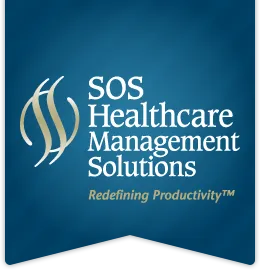It's TIME to stop spinning your wheels!
Have you ever gone into a practice and thought to yourself..."this practice is so successful! They've really got it all together. I wonder what he or she is doing to achieve such success!" Likely, it's a little bit of everything. They know where and how to apply their time and efforts, they employ a staff that they did not "settle" for, they go to conferences and learn how to improve broken systems and how to better care for and treat their patients. Successful people may be just as afraid of change as the next person, but they are not afraid to take the leap into trying new things or new technologies that make their lives easier. They've literally learned to work smarter, so they can STOP spinning their wheels. How about you? Find out some of the not-so secret Secrets of Success!
Secret #1 – Marketing ROI -
Quality Customer Service is your best marketing tool! Give your patients an experience they won’t easily forget; one that they’ll want to tell others about! This experience starts the moment they step foot into your office. What do they see? Signs that scream you are all about collecting money in a timely manner or warm and welcoming signs that focus on patient care? Making a good first impression goes a long way. Assuming they are happy customers is the same as taking them for granted. Be more certain. Measure their satisfaction by performing annual patient surveys. If you don’t know what they are saying about you to their friends, you can’t make an honest effort to make things better.
Secret #2 - Patient Care –
According to an article on WebMD, researchers who conducted a survey in the UK conclude that universally, patients find these 5 attributes most important to patients:
- Thoroughness of care
- Seeing a doctor with whom they have established a relationship
- Doctors who have warm and friendly manners
- Shorter waiting times
- Flexibility and ease of appointments
Secret #3 – Time and effort – Given that time is a factor of patient satisfaction, more effort should be given by the practice to better manage the schedule. The days of “filling spaces” for the sake of “filling spaces” are over. Educating receptionists to triage calls, use of time-aligned treatment and protocols, patient reminder calls, enforcement of patient policies, time and motion studies to detect where bottlenecks occur and utilization of website to reduce new patient tie-ups are some critical areas that if more attention could be given will improve patient flow.
Secret #4 – Staffing – Fitting the right person to the right job starts during the hiring process. Taking the time to understand each individual’s strengths helps to place them where they will be most effective. People that enjoy what they do, end up doing a much better job than someone merely “placed” in a position. There aren’t bad jobs, just bad employees in the wrong job. Keep in mind, that job positioning is important, but so too is having the right personality fit into the “culture” of the practice! One that shares similar attitudes and work ethics, high morale, can work well with others and aligns with your goals are important to your success.
Secret #5 – Education – Quality instruction for staff should always start with a proper in-house orientation/training program. Creating additional pathways for them to learn more about general podiatric knowledge, patient care, patient relations, office management strategies, team-building, positive attitudes, dealing effectively with change, etc. is equally important. Education is a true component of professionalism. Enhance their professionalism by encouraging and supporting them in:
- Attending seminars and workshops
- Taking courses focused on their specific role
- Joining associations, becoming certified
- Learning more terminology; coding
- Interacting with colleagues
Secret #6 - Systems – Systems are the very infrastructure of a business and too many owners don’t understand the power that systems have over their success or failure. They will blame anything BUT the weakened system when things fail – the staff, the patients, the expenses, etc. Truth is, systems are what keep a practice sturdy and operational and too often, it’s the missing “management” systems (such as staff meetings, annual performance reviews, policies, job descriptions, employee manuals, etc.) that result in functionality breakdown. Doing a “Review of Systems” of your practice is no different than doing a “Review of Systems” on your patient. They are performed as a means of analysis. The only difference is one you do for the patient’s benefit…and one you do for your own.




